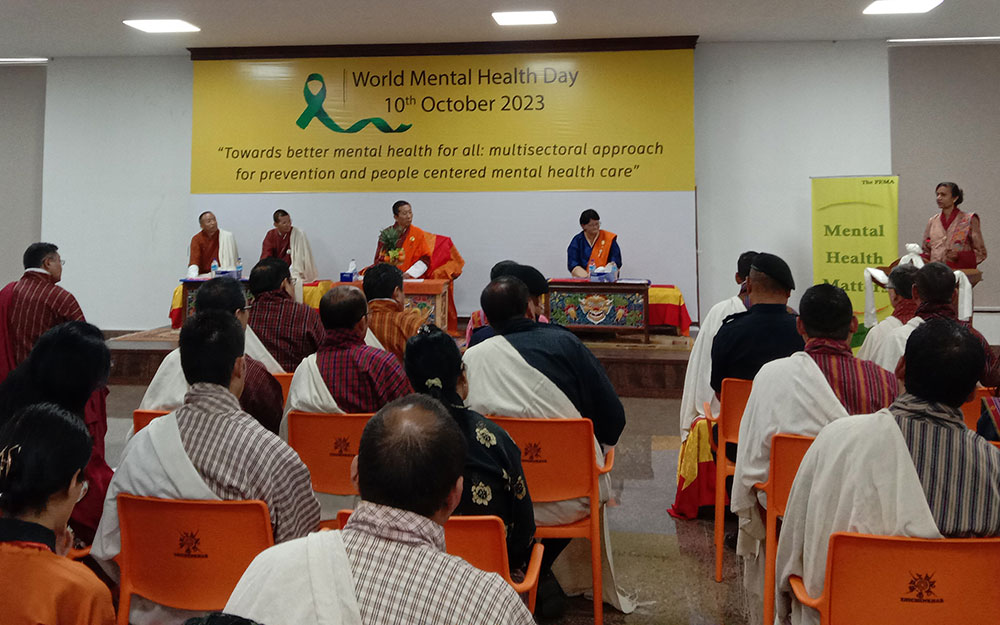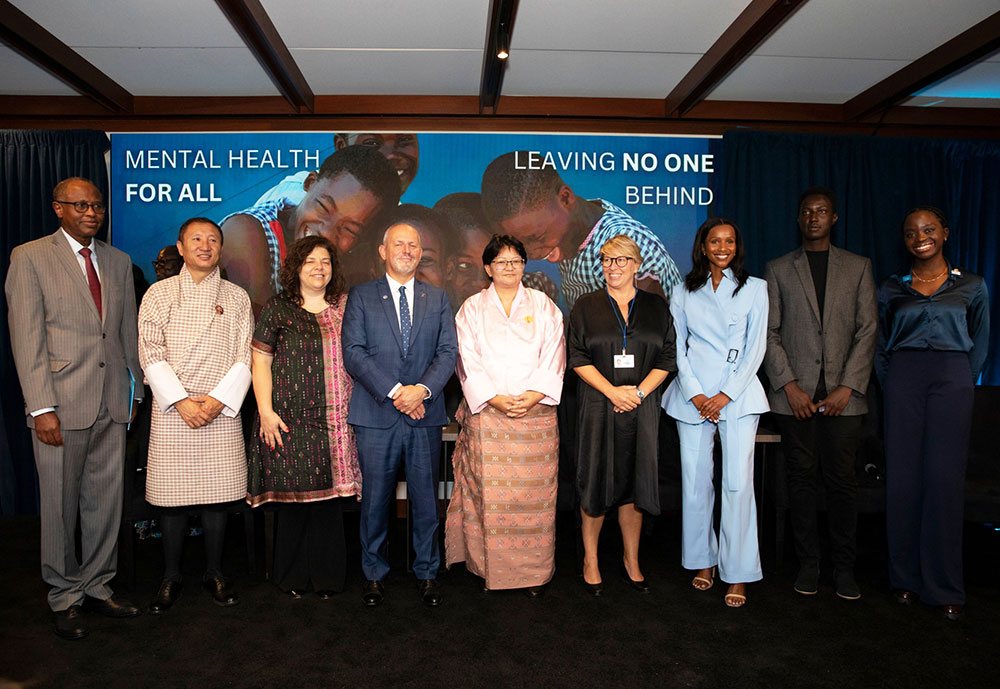KP Sharma
On World Mental Health Day, Bhutan underscored its commitment to addressing mental health issues with a focus on people-centered primary mental healthcare and community engagement.
The event, held in Thimphu, aimed to accelerate actions on mental health promotion and the strengthening of mental health services.
Mental health has become a global concern, and Bhutan is no exception. The country tackles a substantial burden, with 32.50 percent of its population affected by mental, neurological, and substance use disorders, as well as suicide (MNSS).
Prime Minister Dr Lotay Tshering expressed gratitude in his address to Her Majesty the Gyaltsuen for establishing the PEMA Secretariat, which has played a pivotal role in addressing mental health issues in the country.

Prime Minister Dr Lotay Tshering attended the event
He highlighted the unique challenge posed by mental health issues, as they are not easily detectable like other diseases. Lyonchhen stressed the importance of actively promoting mental hygiene through advocacy and dissemination efforts.
Health Minister Dechen Wangmo highlighted the global concern surrounding mental health, citing a significant service gap and a mere two percent global investment in mental health hygiene.
She said that the PEMA Secretariat operates on various fronts, including active advocacy, proactive and responsive services, and legislative support.
Lyonpo emphasised the need to combat the stigma associated with mental health through advocacy and awareness campaigns.
While the treatment for substance-related issues has commenced at three regional hospitals and Phuentsholing Hospital, there is a limitation in expanding these services to other healthcare centres due to a shortage of human resources.
Bhutan currently has only a limited number of psychiatrists, and there are 14 clinical counsellors, each stationed in a different dzongkhag.
Dr Damber K Nirola, a psychiatrist of JDWNRH, highlighted contributing factors to the increasing number of youths seeking psychiatric help in recent times. These factors include job loss due to the pandemic, migration, academic competition, and heightened competition in the job market.
In addition, certain social incidents such as rape, murder, and suicide can lead to post-traumatic stress among individuals exposed to such events in society.
Regarding drug abuse, Dr Nirola acknowledged the challenges faced by law enforcement agencies in apprehending those who use hard-to-detect drugs.
He also recognised the growing demand for psychiatrists and the associated challenges in addressing mental health issues within the country.


